
Writer
By the notes of Fiáth Pompeiusz, the one-time friend of Kapa and Pepe, Professor Szirtes has solved the secret of the time machine, and he realizes the invention relying on "special" H2O. Kapa and Pepe shall return by it into the past in order to set time right, which is out of joint, that is, to correct history, to save King Louis II, and prevent the Mohács Disaster. Pepe yields to the not too tender persuasion to enter upon the great journey through time, dies and revives, and they arrive at the battlefield of Mohács in time. Kapa films the events. The Turks win and cut off the king’s, Pepe’s, head, still the Hungarians dictate the peace treaty. Kapa and Pepe want to return, they fill the time machine up with water from the well, yet it won’t start. Even so Kapa and Pepe hover over Budapest and quarrel.

Himself
This time, Kapa and Pepe are first of all prisoners of war – and convicts taken to forced labor service, Jews, Hungarian soldiers, German soldiers. Once they are to be executed, then again they are to perform executions. The film tells in spectacular episodes about the fact that in the past more than one century and a half we kept marching from war to war; occupation and liberation turned out to be indifferent, and why couldn’t the Jews execute the SS-guys? Our heroes hover about dilapidated barracks, then again on the bridges of the capital they guess whose satellites or eternal friends for all times we might be just now. In the cupboard, among the preserved fruit bottles, Stalin is still hiding. The authors of the film are cited before court, then in a showcase hospital they are waiting for the end to come. A Soviet soldier-maid closes the film with a Péter Nádas-quote.

Writer
This time, Kapa and Pepe are first of all prisoners of war – and convicts taken to forced labor service, Jews, Hungarian soldiers, German soldiers. Once they are to be executed, then again they are to perform executions. The film tells in spectacular episodes about the fact that in the past more than one century and a half we kept marching from war to war; occupation and liberation turned out to be indifferent, and why couldn’t the Jews execute the SS-guys? Our heroes hover about dilapidated barracks, then again on the bridges of the capital they guess whose satellites or eternal friends for all times we might be just now. In the cupboard, among the preserved fruit bottles, Stalin is still hiding. The authors of the film are cited before court, then in a showcase hospital they are waiting for the end to come. A Soviet soldier-maid closes the film with a Péter Nádas-quote.
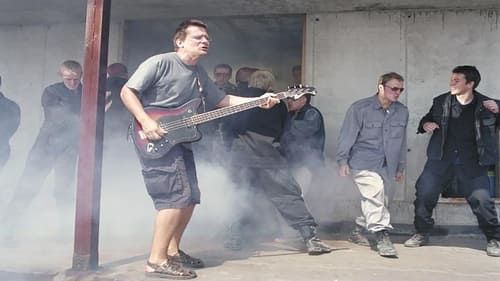
Writer
Waiters’ competition at Heroes’ Square in the late thirties. Dressed as waiters, Kapa and Pepe awake in the bronze chariot of the millennial sculpture group. They drive along the Danube promenade, and on the concrete reinforcement of the demolished Budapest rondella hotel they get involved in a showdown of political background. In the burnt-down Sports Hall the waiters train for a last supper, Pepe and Kapa run around the big laid table with trays in their hands. While doing so, Pepe keeps crying out: "I am the best one, I am the most beautiful one, I am the king, I am the god..." Sitting in a boat on the Danube, a ship goes past them, and the Niagara falls, majestic and breathtaking, resound in their ears. On each passing away something new will come to life – as rapped by Sub Bass Monster.

Writer
Kapa, Pepe and Mesi would like to buy a scrapyard of trains, to start a nostalgia train and earn a lot of money. The capital to start with they want to get from grandpa, who has come home from America with a suitcase full of money. Everybody wants Mesi to approach the old man, because she is the only one he would speak to. But Mesi is more concerned with the idea that she wants a child, by now from anyone, while Pepe is jealous. Kapa’s alleged son emerges, with the mafia behind him: they, too, are eager to get grandpa’s money. After threats and blackmailing, poisoned apples are sent, with only one side of them poisonous. Those dead, by the way, are resurrected by the sound of a song. At last, nobody manages to get the money, but it wouldn’t make sense anyway: it’s all fake. The Statue of Liberty, however, turns out to be blind.

Himself
In the Kerepesi Street cemetery, three grave diggers contemplate the fate of the world, then they step out of this role and in a sequence of episodes they play the typical figures of contemporary Hungarian reality, the fat cat, the swashbuckler, the victim, underworld chieftains, and present little absurd dramas of love, marriage, friendship, public order and legal safety. The author and the film director walk among them all the time, contemplating, laughing at their plays. The stories starting from the graveyard and returning there warn of the inevitability of death. The author and the director (Gyula Hernádi and Miklós Jancsó) wisely make friends with death.

Writer
In the Kerepesi Street cemetery, three grave diggers contemplate the fate of the world, then they step out of this role and in a sequence of episodes they play the typical figures of contemporary Hungarian reality, the fat cat, the swashbuckler, the victim, underworld chieftains, and present little absurd dramas of love, marriage, friendship, public order and legal safety. The author and the film director walk among them all the time, contemplating, laughing at their plays. The stories starting from the graveyard and returning there warn of the inevitability of death. The author and the director (Gyula Hernádi and Miklós Jancsó) wisely make friends with death.

Writer
When Hungary's newest prime minister is shot and killed at a reception, the resulting investigation is necessarily swift and comprehensive. This compelling political thriller uncovers two prime suspects: the woman who guns the leader down, and a man who was friends with both the prime minister and his murderer. Using video surveillance footage, as well as other more artful and symbolic imagery, the noted "visualist" director Miklos Jancso, who is known for his craft in getting his points across non-verbally, combines fantasy and reality in a highly ironic manner.

Screenplay
From the film-shooting in the Buda Castle Marci and his friend go to a well-paying job. The scene is a big castle in the middle of a huge park. They enjoy the company of the Kid and the beautiful naked French girl, Nathalie. Their job is to watch the monitors on which they can see the Moscow coup détat. By the time Gorbachev is executed the Communist and the Nationalists have taken turns in occupying the castle and the park.

Writer
Jancso emphasizes highly evocative and ambiguous imagery over dialog or exposition. Here he seems primarily interested in showing the painful, stunted lives of Hungary's intellectuals, who are shown as remaining silent and ineffectual during various political crises. There are several action sequences involving chases and shootouts, but since there's no clear narrative we're not sure how they relate to each other or to anything else. The film is, however, visually fascinating, with shots of police cars, horses, and naked bodies juxtaposed and extensive use of multiple video imagery.
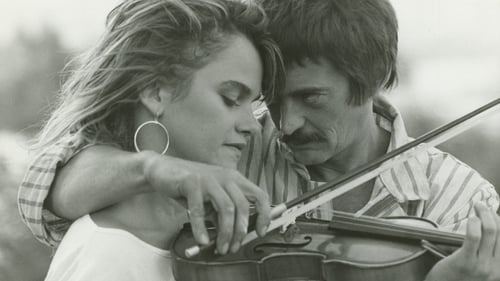
Screenplay
Zoltai is a Hungarian professor who returns home after a visit to the United States. Following a television interview, he commits suicide and leaves a note for his longtime friend Dr. Bardocz. The doctor and Zoltai's colleague Komindi join the police in investigating what drove the man to suicide.

Writer
1958, Budapest. Gerencsér is a skilled worker at the abattoir, his wife left in 1956. They falls in love with the beautiful Mrs. Hász at the personnel management department, but they only date secretly because of a former relationship of Mária. They go on holiday and travel to the Mátra, just the two of them.

Writer
The film the was made of OMEGA band's November 1982 concert in the Budapest Sportstadium.

Writer
A historical drama set in the 1400s, a young man sent to Italy but is forced back after his father's mysterious death.

Writer
Anna is a stylist in Budapest. One day at a restaurant, she thinks she recognizes Marie Aubier, a 22-year-old French girl, her own daughter.

Writer
Zsadányi flees from the authorities with his goddaughter, Bankós Mari, and they escape into the forest. The film then skips ahead thirty-fold years: Zsadány and Mari are now lovers, with the sound of war in the background halting their romance. The old friends of Zsadányi have joined with the Nazis, and the landowner living with his peasants in a socialist community grows distant from them. Zsadányi is held responsible for political problems in the country, and will pay with his life.
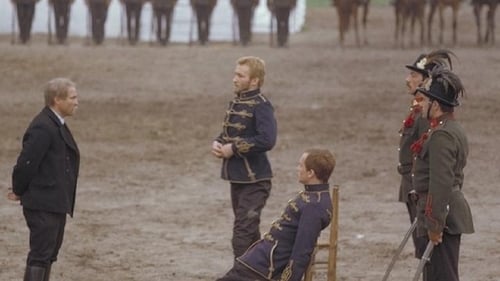
Writer
The movie portrays a peasant revolt in Hungary in the early twentieth century.

Writer
The man is promoted and given a new assignment at his work-place. At home, he stares at a video-cassette: it portrays his wife's face in countless versions, she is sometimes simply beautiful, then unfathomable, but it is mostly a sad, closed, lonely face.

Novel
A World War II-style "war game" setting the wealthy customers against skilled mercenaries goes awry when the simulated war gets too real.
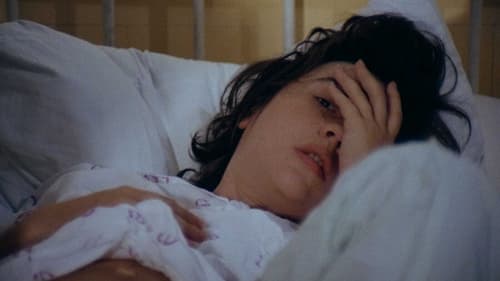
Writer
Village-girl (Juli Kovács) arrives in the city to work in a factory. The works manager (János Bodnár) sets his eye on her, but at first the girl refuses his advance.

Writer
When middle-aged Kata realises that her life will only be complete if she has a baby of her own, her longstanding-but-married boyfriend Joska refuses to comply. But by developing an unlikely friendship with the angst-ridden teenage orphan Anna, who is also involved in a controversial relationship, Kata discovers aspects of herself, and her role as a woman, that have gone unexamined throughout her entire, lonely life.

Writer
The royal summary court sentences Sallai Imre and Fürst Sándor to death on charges of attempting to uproot the state and the social order. The film, the story of which takes place in 1932, enlarges the moment of delivering the death-sentence. Sallai, preparing for his death, envisions the people and the events that have been decisive for his life.
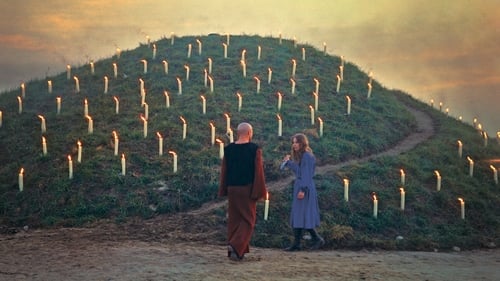
Writer
It has been fifteen years since the death of her father, Agamemnon, and Elektra still burns with hatred for Aegisztosz, who conspired with Elektra's mother to kill him.
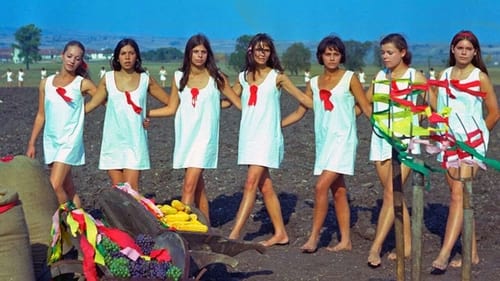
Writer
개성 강한 작가 중에서도 가장 독창적인 작가로 평가받는 미끌로쉬 얀초의 작품으로 1972년 칸 영화제 감독상을 수상한 작품이다. 붉은 시편은 단지 28개의 쇼트만으로 구성되어져 있는데 그의 작품은 발레를 보는 듯한 인물들의 움직임과 역동적인 카메라를 워크, 탁월한 색채 감각이 빚어내는 생동감 넘치는 이미지들이 특징이다.
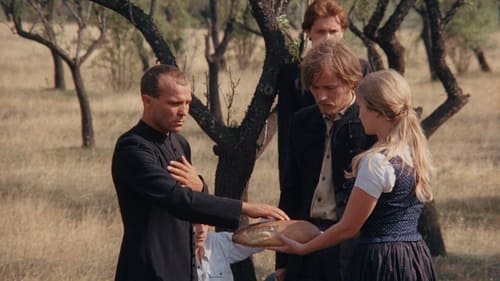
Writer
1919년 혁명 진압 이후 헝가리에 파시즘이 도래했음을 비판하는 풍자극으로, 한 시골 마을에서 혁명군이 독실하고 광적인 신부 ‘바르가’의 목숨을 살려주지만, 그가 후에 학살을 주동한다는 내용을 담고 있다. 사회 변혁의 시대, 권력을 쥐는 세력이 바뀔 때마다 민중을 억압하는 방법은 더욱 정교하고 교묘해진다는 것을 한편의 우화로 보여주는 작품.

Writer
The preparation, in Hungary, of the assassination in Marseilles of King Alexander of Yugoslavia in 1934.
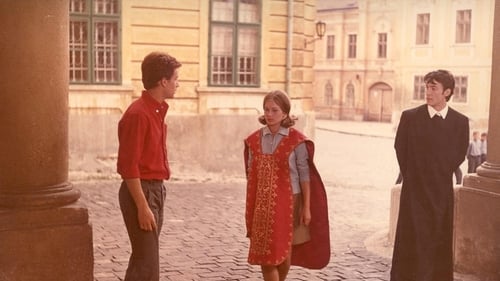
Writer
1947년, 전국민중대학생연합에 소속된 청년 공산당원들이 교회와 중학교를 점령한다. 마르크스주의의 유효성을 토론하며, 학생들을 자극하는 청년들. 학생 몇 명을 체포하러 온 경찰관을 두고 거친 논쟁이 벌어지고, 리더인 ‘라치’는 자리에서 물러난다. 그의 권력을 이어받은 두 여학생이 사제들의 옷을 벗기고, 책을 던지고, 창문을 깨트리는 폭력을 행사하면서 사태는 더욱 악화되는데…. 혁명이라는 이름으로 자행되는 폭력의 악순환과 권력욕을 비판하는 강렬한 수작. (한글자막 제공_전주국제영화제)

Writer
Set during a turbulent era of disquiet, fear, persecution and terror, which permeates every corner of post-WWI Hungarian society. In 1919, after just a few months of communist rule the Hungarian Republic of Councils falls victim to a nationalist counter-revolution. Admiral Horthy, leader of the nationalist far right movement, becomes the self-proclaimed regent of Hungary, and assumes power as the legal Head of State. Soldiers of the short-lived Hungarian Red Army are now on the run from relentless secret policemen and patrol units of the nationalist Royal Gendarme. If caught, ex-Red Army soldiers are executed without mercy or proper trial. István Cserzi, a former soldier of the Red Army has fled to the Great Hungarian Plains and has taken refuge on a farm, which is run by two sympathetic women. Due to the generosity of these women and a former childhood pal...
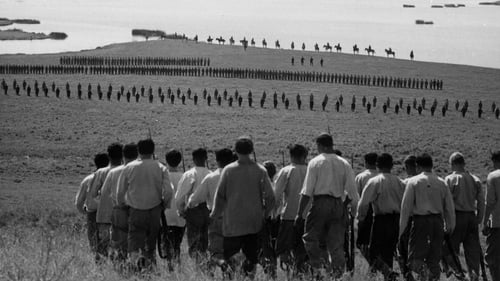
Writer
1918년, 소련 혁명군인 적군과 정부군인 백군의 참혹한 대립을 그린 작품. 일만 여명의 헝가리 의용군들이 소비에트 적군에 합류해 혁명의 전쟁을 시작한다. 하지만 백군의 공격을 받고 전멸당할 위기에 처한 이들. 살아 남은 이스타반은 인근의 병원으로 탈출해 도움을 요청하지만, 남은 적군들도 대평원의 전투에서 모두 장렬히 전사한다. 뒤늦게 도착한 지원군의 병사 라즐로는 칼을 들어 그들의 죽음에 경의를 표한다. 10월 혁명 50주년을 기념하기 위해 제작된 영화로, 한치의 화면도 낭비하지 않는 구성과 영상미는 지금 봐도 매우 탁월하다.

Writer
1860년대 말, 헝가리에서 코슈트 러요시가 이끌었던 헝가리 혁명이 진압되고 오스트리아가 헝가리의 패권을 다시 잡았던 시기를 배경으로 하고 있다. 저항군들은 고립된 요새에 감금된다. 수용소의 교도관들은 이 수감자들 중에 반란군의 지도자들이 있다는 사실을 알게 되고 그들의 색출을 위해 온갖 고문을 자행한다.

Writer
In the final days of World War II, a young Hungarian is making his way home, through countryside full of the debris of war, when he is captured and imprisoned by Russians. Left in the custody of a young Russian soldier, the two youths form a friendship in spite of not speaking each other's language.
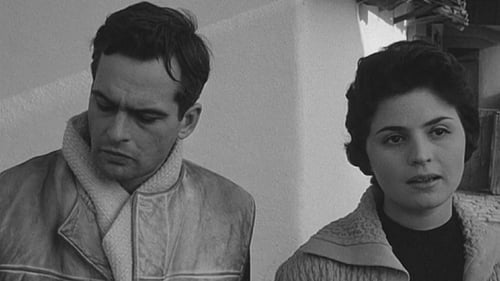
Writer
전도유망한 젊은 의사 ‘암브루슈’는 은퇴한 노교수가 존재감을 증명하려고 집도하는 심장 수술에 참여한다. 수술 이후 자신의 삶에 회의를 품게 된 ‘암브루슈’는 목적 없는 인생과 미래를 알 수 없는 사랑에 지쳐 고향으로 떠난다. 그리고 귀향길에서 아버지의 신념과 인간애를 느끼며, 다시 새로운 희망을 얻는다. (한글자막 제공_전주국제영화제)

Screenplay
전도유망한 젊은 의사 ‘암브루슈’는 은퇴한 노교수가 존재감을 증명하려고 집도하는 심장 수술에 참여한다. 수술 이후 자신의 삶에 회의를 품게 된 ‘암브루슈’는 목적 없는 인생과 미래를 알 수 없는 사랑에 지쳐 고향으로 떠난다. 그리고 귀향길에서 아버지의 신념과 인간애를 느끼며, 다시 새로운 희망을 얻는다. (한글자막 제공_전주국제영화제)





























